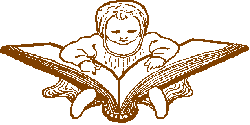
PSYCHOHISTORY
Articles & Texts
[Books texts] [Journal Articles] [Charts] [Prenatal]
[Trauma Model] [Cultic] [Web links] [Cartoons] [Other]
 |
Digital
Archive of PSYCHOHISTORY Articles & Texts [Books texts] [Journal Articles] [Charts] [Prenatal] [Trauma Model] [Cultic] [Web links] [Cartoons] [Other] |
by: Joseph E. Illick
Special Issue
"On Writing Childhood History"
The Journal of Psychohistory 16 (2) Fall 1988
Also
see:
"Illick's
Illusion" DeMause' replies to Illick's Comment
The reason for the unpopularity of childhood history lies not in the hostility of a historical establishment that allegedly controls publication but in the inability of us - the writers of childhood history - to be truly psychohistorical and thus appeal to our fellow historians. We have failed to make a convincing connection between child-rearing conditions and adult behavior, the latter being the primary concern of most of our colleagues.
There have been, needless to say, exceptions to this observation. In my field of interest Philip Greven, author of The Protestant Temperament. Patterns of Child-Rearing. Religious Experience and the Self in Early America (1977), has provided us with a model study, both in the questions it raises and answers and the ones we are left to ponder, e.g., how is child rearing related to social status and geographical region? how can these patterns be more specifically located in time? David Riesman's The Lonely Crowd. A Study in Changing American Character (1950) is another book that links child rearing to adult behavior although, like Greven, he deals only with Euro-Americans.
In Joseph K. Hawes and N. Ray Riner, eds., American Childhood. A Research Guide and Historical Handbook (1985) there appears "An Overview of the History of American Childhood" (pp.6-Il), concise yet comprehensive, save for its neglect of the native American Indians. Implied in this essay is the sensible theory that changes in the technological and economic bases of society alter child-rearing patterns. Hawes and Hiner have also edited an anthology titled Growing Up in America: Children in Historical Perspective (1985). Domestic Revolutions. A Social History of American Family Life (1988) by Steven Mintz and Susan Kellogg is replete with insightful observations on childhood.
Any scholar who studies these few books will find useful source references as well as see clearly what work needs to be done.
Joseph E. Illck, Ph.D., teaches history at San Francisco Stale University.
Also see:
"Illick's Illusion" DeMause' replies to Illick's CommentSpecial Issue "On Writing Childhood History"
The Journal of Psychohistory 16 (2) Fall 1988
 |
Digital
Archive of PSYCHOHISTORY Articles & Texts [Books texts] [Journal Articles] [Charts] [Prenatal] [Trauma Model] [Cultic] [Web links] [Cartoons] [Other] |
To report errors in this electronic
transcription please contact:
[email protected]